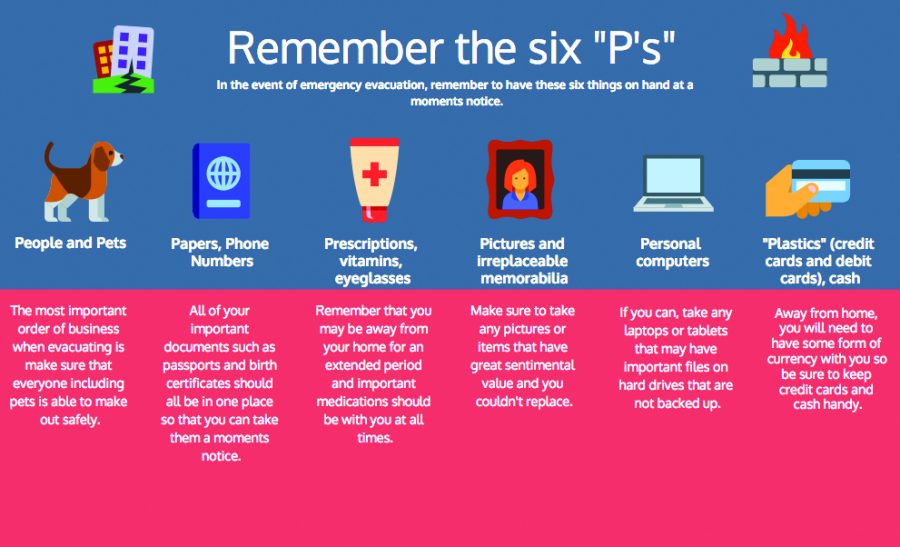Ways to stay prepared for emergencies
The Los Angeles Fire Department advises to have these six things with you at all times in the case of an emergency evacuation.
December 16, 2019
Though many Angelenos have historically been aware of the constant threat of earthquakes, they are increasingly having to face fires. With the recent fires burning across Los Angeles County, thousands of individuals have faced calls for evacuation from their place of residence due to the horrible conditions. Those in the “fire areas” have found themselves questioning how prepared they are for future fires and the “Big One.”
The increase in fires in Los Angeles County has had made more individuals question when the “Big One” is coming and what are the necessities needed to be prepared.
- Documentation. Always keep important documentation in an easy access area. Birth records, passport and any proof of residency should be kept inside of a safe. There might not even be an emergency it is just common sense to have these records in a safe and easy to access the area inside of your home. For more information about things to do when needing to evacuate visit the LAFD website and find out more about the “Six P’s” and suggestions when evacuating
- Food and Water. Have plenty of food and water not just for your family but if you have any pets, it is suggested you carry extra food. The Mayo Clinic has decided on a recommended amount of water intake you should have, for men it is recommended about 15.5 cups a day and about 11.5 cups for women. Of course, you should always carry more because you never know how long the fires will continue for so if you have around two cases of water you should be fine. Always consider your pets will need food and water too.
- Money. It is suggested keeping an extra stack of cash in your safe or go bag along with your important documents. Money is super important, if worse comes to worst, you may need to stay in a hotel for a fixed time so always remember you need money. Though many people carry credit cards in their wallets or on their person you should always have cash in case the power grid goes down. If the power grid goes down in the area you would be unable to access an ATM and credit cards wouldn’t work.
- Medicine. Anyone with medical problems should have extra medicine for future treatment. For example, if you have asthma you should have an extra inhaler in case you run out albuterol or if you have diabetes you should always have extra doses of insulin. The medicine should be one of the first things on your list if you need to evacuate, the last thing anyone wants is to have an injury or problem and be in a situation where someone desperately needs their medication.
- Go Bag. Everyone should have a duffle bag full of items that they find valuable or important. It is recommended that you carry about three days of clothing, batteries, flashlights and a charger for any cellular devices. It is really up to you if you believe it is important to carry any photos. For more recommendations for a go-bag visit The Red Cross and see what is recommended for a survival kit and put that in your go-bag.



















